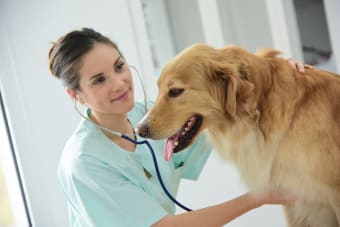Regular veterinary check-ups are the cornerstone of responsible pet ownership. They are not only essential for keeping your pet healthy and happy but also for catching potential health issues before they become more serious and costly to treat. In this comprehensive blog post, we'll delve into the importance of pet check-ups, why they matter, and how to prepare for them.
The Importance of Regular Vet Check-Ups
Early Detection of Disease
One of the primary reasons for scheduling regular vet check-ups is the early detection of diseases. Veterinarians are trained to spot subtle signs and symptoms that may go unnoticed by pet owners. When diseases are detected in their initial stages, they are often more treatable, leading to better outcomes for your pet and less financial strain on you.
Preventive Care
Prevention is key to maintaining your pet's well-being. Vets can recommend and administer vaccinations and parasite control measures during check-ups. These preventative steps can help safeguard your pet from common illnesses and infestations, ensuring a longer and healthier life.
Comprehensive Health Assessment
During a pet check-up, your veterinarian will perform a thorough physical examination. This evaluation assesses your pet's overall health and can detect potential problems early on. Armed with this information, you can make informed decisions about your pet's care and address issues before they worsen.
Relationship Building
Regular vet visits also foster a strong bond between you, your pet, and your veterinarian. Over time, your vet will get to know your pet's unique needs and personality. This familiarity enables them to provide more personalized care, tailored to your pet's specific requirements.
How Often Should Your Pet See the Vet?
The frequency of your pet's visits to the vet depends on various factors, including age, health status, and breed. As a general guideline:
Adult pets should have a routine check-up at least once a year.
Puppies and kittens require more frequent visits, typically every six months, as they undergo rapid growth and development.
If your pet has underlying health conditions, your vet may recommend more frequent check-ups.
Always schedule a vet appointment if your pet exhibits signs of illness, such as changes in appetite, weight loss, or unusual behavior.
Preparing for Your Pet's Vet Check-Up
To make the most of your pet's vet visit, follow these tips:
Prepare Questions: Before the appointment, jot down any questions or concerns you have about your pet's health or behavior.
Vaccination Records: Bring a copy of your pet's vaccination records to ensure your vet has a complete medical history.
Stool Sample: If requested, bring a fresh stool sample. This can help the vet check for internal parasites.
Light Meal: Feed your pet a light meal before the appointment to prevent an empty stomach, but avoid heavy meals.
Conclusion: Regular pet check-ups are not just a routine; they are a fundamental aspect of responsible pet ownership. By prioritizing these visits, you ensure your pet's well-being and build a strong, lasting relationship with your veterinarian. Remember, your pet's health is worth every moment spent in the waiting room and every question you ask during the check-up.













0 Comments